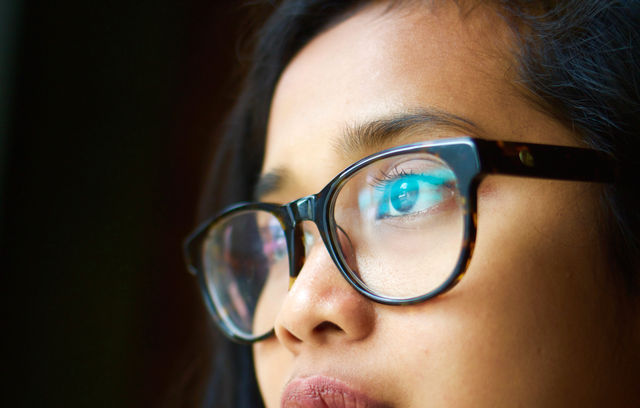Japanese women on social media are demanding their right to wear glasses at work after a Japanese television show recently exposed companies in different sectors that impose a “glasses ban” on its female employees.
The program, which aired on the Nippon TV network in Japan, listed a number of reasons that employers gave for not wanting women to wear glasses while at work. According to Quartz, domestic airlines said they banned glasses “for safety reasons,” and businesses in the beauty industry said it was “difficult to see the employee’s make-up properly behind glasses.” Meanwhile, major retail chains said female shop assistants who wear glasses give off a “cold impression.” Traditional Japanese restaurants asserted that glasses “simply do not go well” with traditional Japanese attire.
Since the show’s airing last week, numerous Japanese women have posted photos of their glasses on social media and used the hashtag “glasses are forbidden,” which has been trending in the country. One Twitter user said, “These are rules that are out of date,” while another described the reasons given by employers as “idiotic.” One woman who works in restaurants tweeted that she was repeatedly told not to wear her glasses because it would appear “rude,” and because they didn’t pair well with her traditional kimono.
Kumiko Nemoto, professor of sociology at Kyoto University of Foreign Studies, said that the reports reflected “old, traditional Japanese” thinking. “The reasons why women are not supposed to wear glasses… really don’t make sense. It’s all about gender. It’s pretty discriminatory,” Nemoto added. “It’s not about how women do their work. The company… values the women’s appearance as being feminine, and that’s opposite to someone who wears glasses.”
This isn’t the first time that Japanese women have called out prevalent sexist beauty standards in the workplace. Earlier this year, there was a demand for Japanese companies to stop forcing female staff to wear high heels. More than 21,000 people signed an online petition, started by female actor and writer Yumi Ishikawa, in what has become known as the #KuToo movement. According to Quartz, the term #KuToo is apparently a pun, playing on the Japanese words “kutsu” (shoes) and “kutsuu” (pain); it is also a reference to the global #MeToo movement against sexual abuse.
Campaigners mention that wearing high heels is viewed as obligatory when job-hunting or working in many Japanese companies. Supporters of this movement were further aggravated when, in response to the #KuToo petition, a Japanese minister reportedly said that high heels are “necessary and appropriate” for women in the workplace.
The anger over the glasses ban in Japan also echoes the South Korean phenomenon that occurred last year, when an anchorwoman named Lim Hyeon-ju broke norms by wearing glasses (instead of contact lenses) for her MBC early morning show. While many male news presenters in South Korea have often been seen wearing glasses, this was the very first time that a Korean female news anchor wore glasses on air for a major television network.
According to the World Economic Forum’s latest 2018 global gender gap report, both Japan and South Korea were ranked well-behind other developed countries—110 and 115 out of 149 countries, respectively. Though both countries have seen some positive changes as a result of the ongoing backlash by women against sexist and misogynistic workplace practices, many believe there’s a lot more to be done for women in these nations to have equal rights.
Header photo via Good Free Photos
More from BUST
How The Anonymous South Korean Feminist Movement Moved From Online To The Streets
Female Medical Students In Japan Surpass Their Male Counterparts In Exam Rates
To Hell With High Heels: Japanese Women Are Kickin’ Outdated Dress Codes


